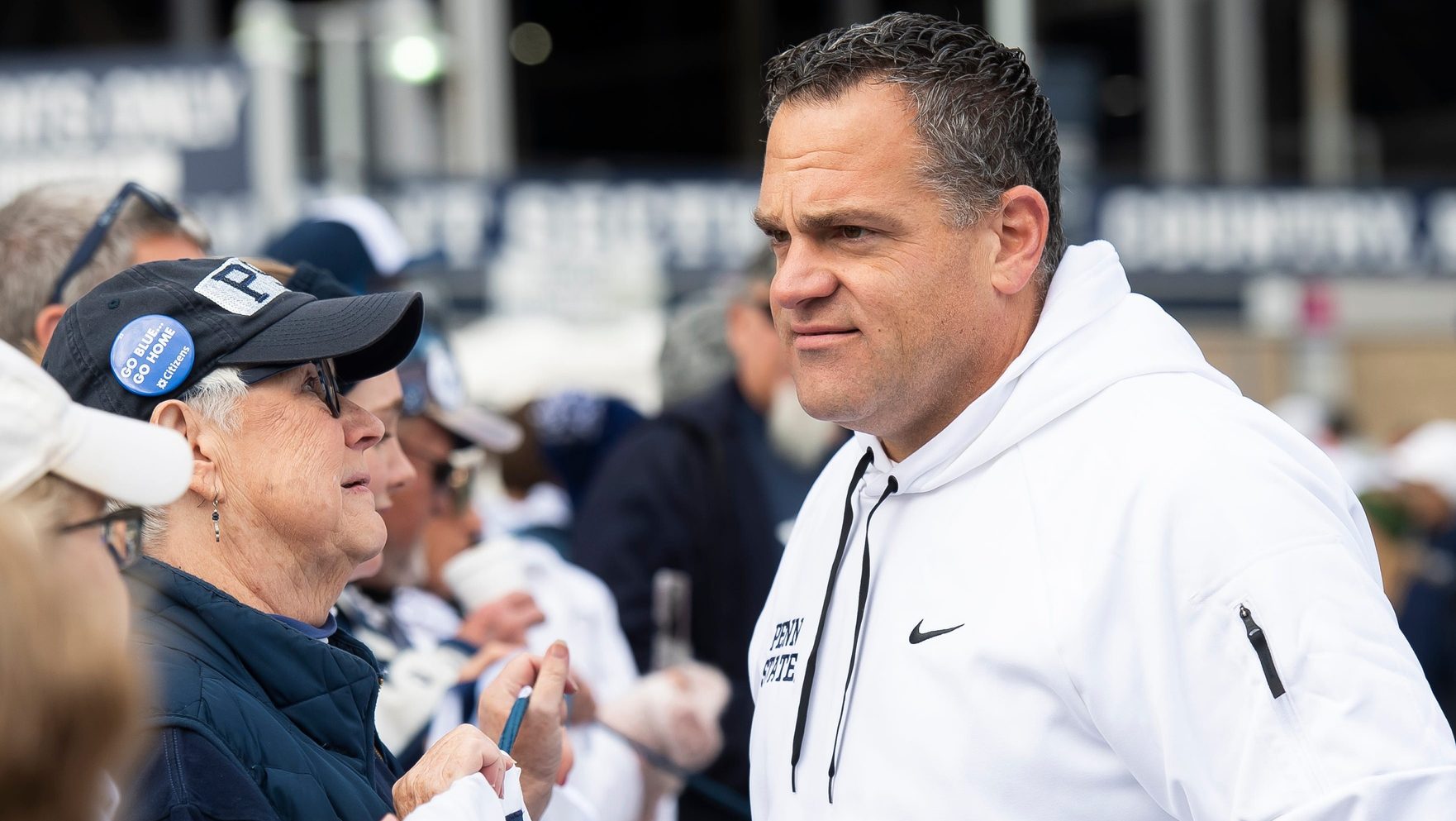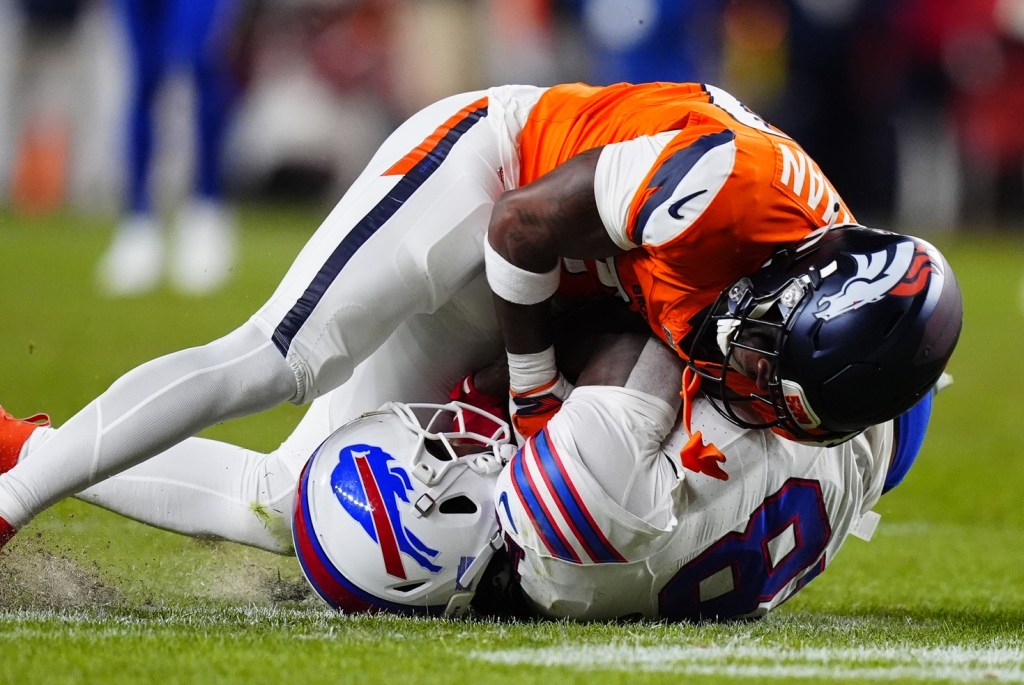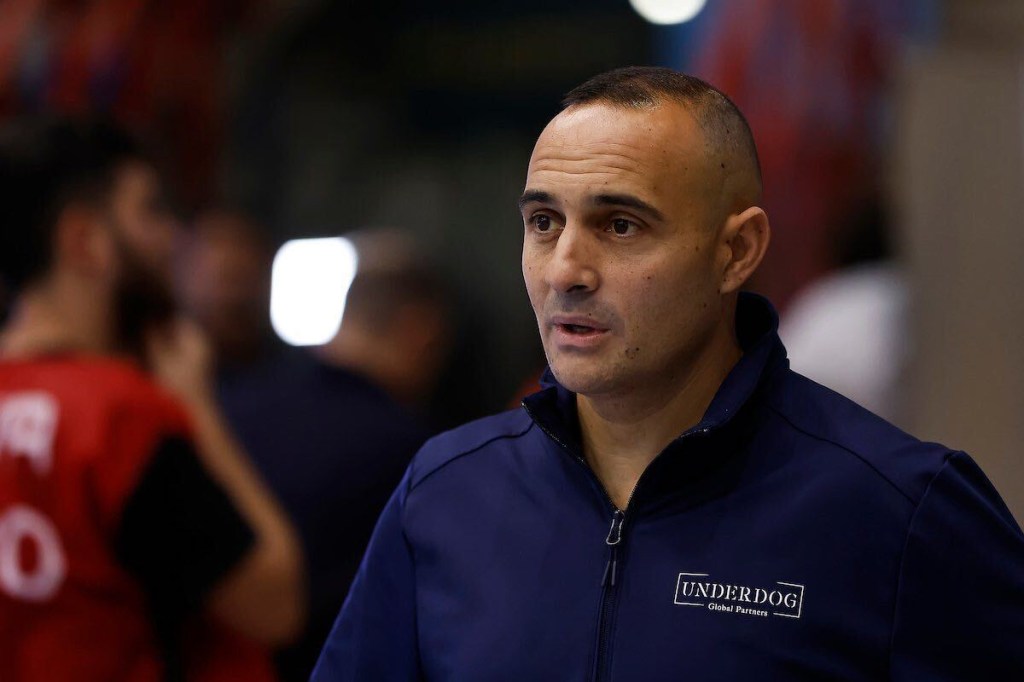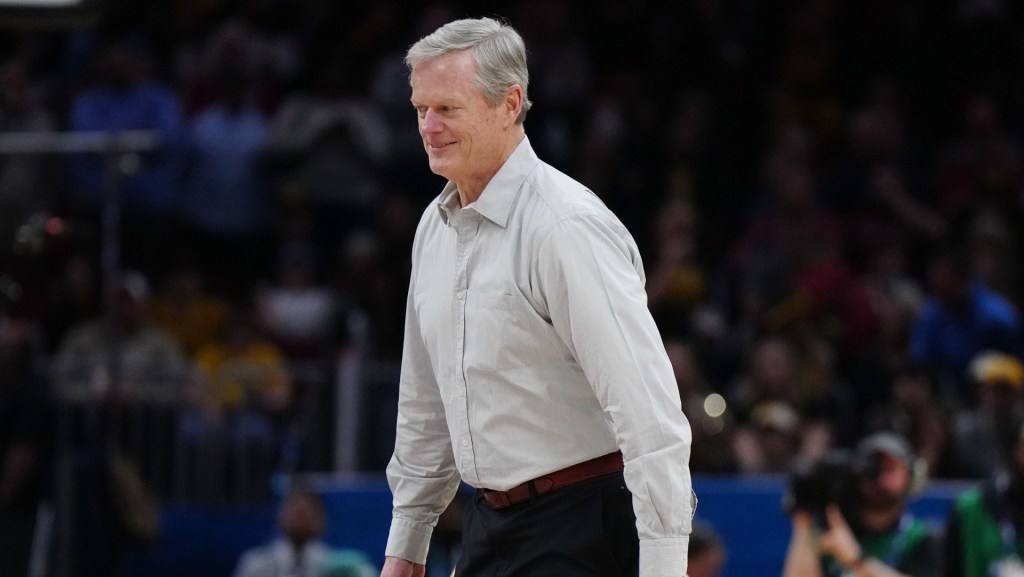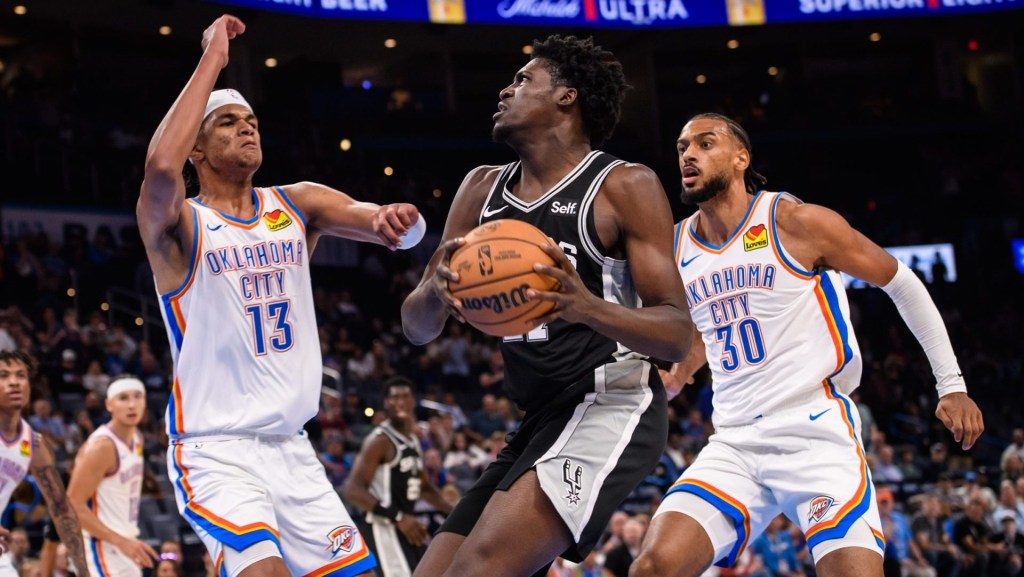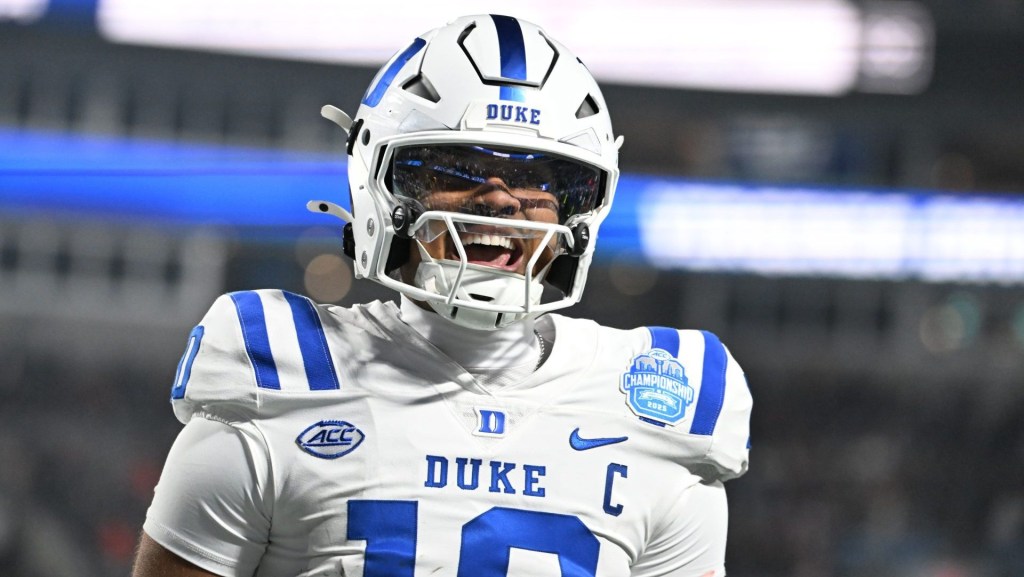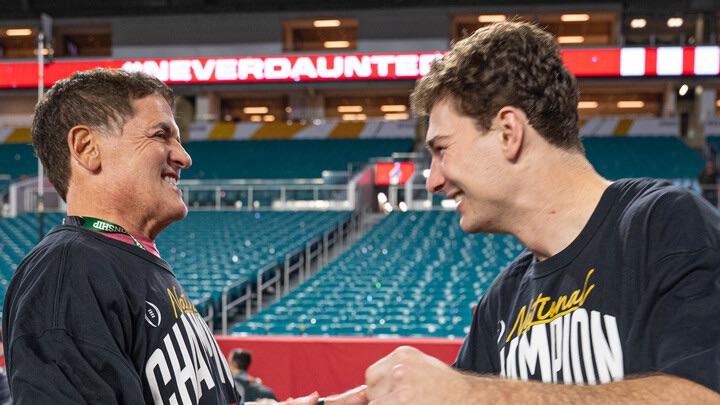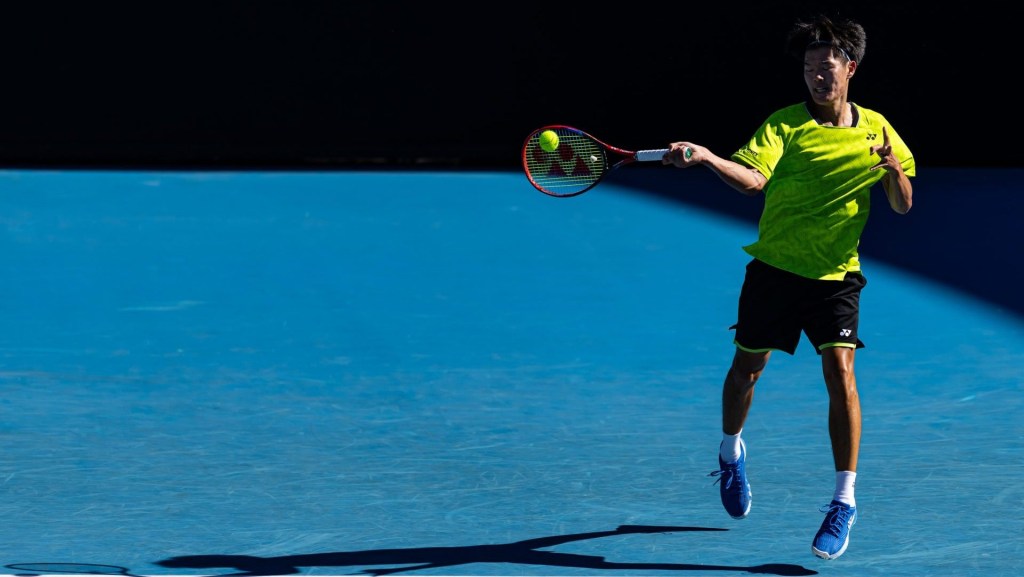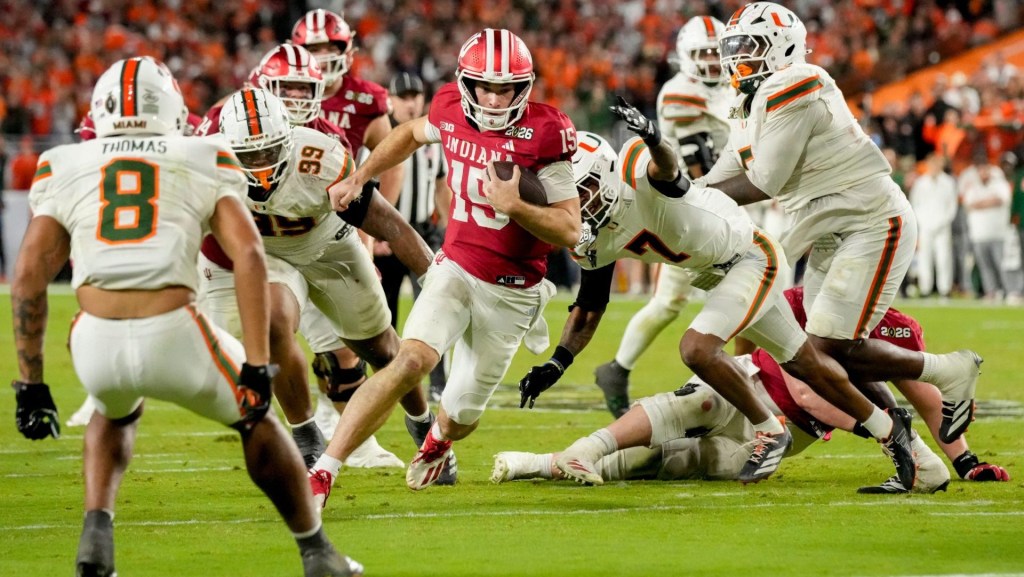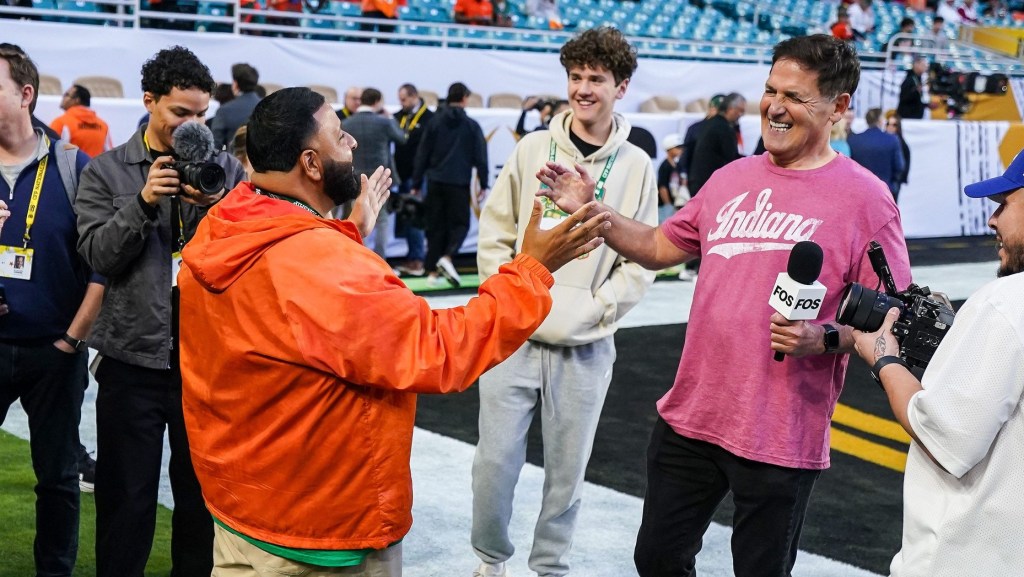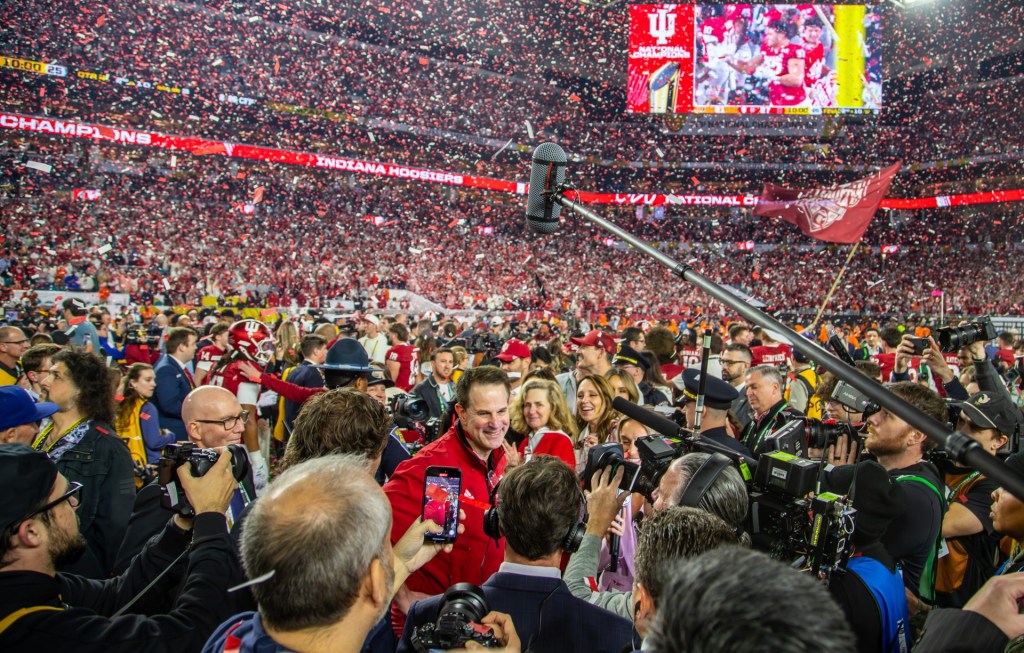On Sept. 5, Penn State and Adidas announced a “transformational” 10-year apparel agreement to begin in 2026 that will replace the school’s decadeslong relationship with Nike. The deal was widely reported to be worth about $300 million.
In the weeks since, several sources familiar with the contract negotiations have told Front Office Sports that some members of the board of trustees are outraged by the process behind the decision, and were never shown the full offers from Adidas or Nike—only partial summaries—despite repeated requests. The trustees believe they are entitled to view the documents under Pennsylvania state law. (The school’s own bylaws do not require trustee signoff on athletic deals.)
Those trustees are aggrieved, sources say, over two specific elements of the Adidas and Nike offers that were never disclosed to the board: that the Nike offer included more than $30 million in cash upfront; and that the Adidas contract includes, beginning in 2027, an annual product allotment of $500,000 in retail value for athletic director Patrick Kraft, separate from the $8 million annual product allotment earmarked for the athletic department.
In response to a list of questions sent for this story, Penn State sent FOS a lengthy statement from board of trustees chair David Kleppinger and vice chair Rick Sokolov on Saturday night vigorously denying any misconduct around the deal—and posted it on the school website.
While product allotments are common in school athletic deals, three current and former Power 4 athletic directors told FOS that a $500,000 product allotment attributed to the athletic director is not standard. Adidas did not answer questions from FOS about whether that was common in its agreements with schools.
Leah Beasley, who joined Penn State last month from Oklahoma as a deputy athletic director, spoke to FOS Saturday night and confirmed the $500,000 product allotment as well as the contract wording that it is for the athletic director. “That’s pretty standard for apparel deals, and it is for the discretion of the athletic department, it is not for Pat Kraft personally,” she told FOS. “It is encompassing of many things. It’s for the university and athletic department to take care of coaches, staff, and athletes, it’s for co-marketing dollars, we can do a lot with that money.”
Penn State’s lengthy statement says that the deal “is the best financial and overall partnership for Penn State. Recently circulating rumors suggesting anything else are simply false.”
It continues: “The process of negotiating and securing this deal was handled professionally by the Penn State administration, and in keeping with all of our standards. It was conducted rigorously, with a value-driven review of competing proposals. The Board of Trustees does not currently vote to approve apparel, beverage, multimedia, or similar commercial agreements, however, University trustees were provided summaries of the competing proposals prior to the final agreement.
“Finally, any suggestion about personal benefits for Intercollegiate Athletics executives is patently false. Pat Kraft, Vice President for Intercollegiate Athletics, and his team maintain close working relationships with executives at all major suppliers – official partners and their direct competitors – as a fundamental responsibility of their position. That is their job. Any suggestion to the contrary is reprehensible.
“Board leadership, the University president, and the Athletics Director are unequivocally aligned on both the approach taken and the outcome reached. Penn State is entering this partnership from a position of strength, and it reflects the best overall outcome for our student-athletes, our fans, and the long-term strength of Penn State Athletics.”
Adidas, in response to questions from FOS, pointed to the school’s statement and also provided one of its own. “The terms of our agreement with PSU are confidential,” the company told FOS.
In response to repeated questions about the $500,000 allotment, an Adidas spokesperson wrote, “Generally, it’s standard to supply our university partners with a product allotment for student-athletes and staff. The disbursement of product is determined by the Athletic Department to ensure all students and staff have products to represent the school and perform at their best.”
The activist trustees, sources say, also see a conflict of interest in what they believe to be Kraft’s close friendship with an Adidas marketing executive Chris McGuire, who negotiated the deal. “Adidas takes compliance with NCAA policies and all laws very seriously,” the company told FOS in a statement. “This extends to Chris McGuire and the sports marketing organization. In his role, McGuire is responsible for building and maintaining relationships across NCAA, grassroots and professional organizations. These are industry standard responsibilities for an individual overseeing Sports Marketing and it is a misrepresentation of McGuire’s respected reputation to imply otherwise.”
Nike, which has been Penn State’s apparel sponsor since 1993, declined to comment for this story. The Adidas deal kicks in on July 1, 2026.
Just last year, the university lost a lawsuit with a trustee over a similar situation: former trustee Barry Fenchak sued the school for endowment records, and won.
Fenchak was kicked off the board by a 30–4 vote in June, with other trustees citing a crude joke Fenchak made to a woman.
“The longstanding history at Penn State is for leadership to provide limited information, or disinformation, and expect the trustees to rubber-stamp and support every decision they make, and generally speaking, that is what the trustees do,” Fenchak told FOS. “When a trustee or group of trustees determines they need more information and ask for it, the procedure is to delay and deny that request.”
Fenchak was elected by alumni, and alumni-elected trustees have often been at the heart of fights over transparency at Penn State, which has broad exemptions from Pennsylvania transparency laws. Kleppinger, the board chair, was appointed by Pennsylvania governor Josh Shapiro. The board is made up of 38 trustees appointed and elected by various factions, with the governor appointing six trustees and also sitting as a non-voting member. Nine trustees are elected by alumni.
The governor’s office did not immediately respond to a request for comment.
In the same week Penn State announced the Adidas deal, quarterback Drew Allar announced a personal NIL deal with Nike. The football team’s final season in Nike uniforms has been a hard one, with losses to UCLA and Northwestern, and a season-ending injury for Allar on Saturday night.
—Additional reporting by Alex Schiffer.
